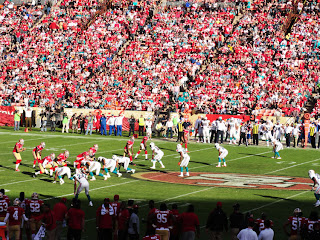The President's December 16, 2012, address in Newtown is one of the more compelling, well-written editions of recent Obama speeches, which is pretty weird considering it argues for a policy he doesn't totally agree with, on an issue he doesn't care much about.
First Obama obligatorily memorializes the occasion by redescribing the tragic events and the redeeming moments within them. Then he says,
We can’t tolerate this anymore. These tragedies must end. And to end them, we must change.
This change he refers to is a fundamental one concerning our culture and its relation to guns, individualism, and violence--something not easily changed. So how does a President / lawyer / legislator start us on the road towards such a change? Through legislation:
We will be told that the causes of such violence are complex, and
that is true. No single law, no set of laws can eliminate evil from the
world or prevent every senseless act of violence in our society, but
that can’t be an excuse for inaction. Surely we can do better than this.
The kind of legislation he has in mind, gun control, was not previously on his agenda, so to him it isn't the most appealing option, and he seems to doubt that it will even be all that effective; but he sees it as a means, the most obvious place to begin effecting a cultural change immediately:
If there’s even one step we can take to save another child or another
parent or another town from the grief that’s visited Tucson and Aurora
and Oak Creek and Newtown and communities from Columbine to Blacksburg
before that, then surely we have an obligation to try.
... We know that, no matter how good our intentions, we’ll all stumble sometimes in some way.
We’ll make mistakes, we’ll experience hardships and even when we’re
trying to do the right thing, we know that much of our time will be
spent groping through the darkness, so often unable to discern God’s
heavenly plans.
There you have it: although it may not work as intended, new gun control legislation is something he thinks he can start on now, but he hopes other, better options will be revealed in the days ahead. Of course, though he's not the first, last, or only person to ever float such a message, Obama's talk of cultural change fuels his many detractors, those Conservatives whose ideological allegiance grows with their sense that policies traditionally deemed Liberal are now destroying their way of life.
Notes:
- It does seem strange that he would be arguing policy at a memorial service.
- My favorite part of this is far and away the following:
You know, someone once described the joy and anxiety of parenthood as
the equivalent of having your heart outside of your body all the time,
walking around.
With their very first cry, this most precious, vital part of
ourselves, our child, is suddenly exposed to the world, to possible
mishap or malice, and every parent knows there’s nothing we will not do
to shield our children from harm. And yet we also know that with that
child’s very first step and each step after that, they are separating
from us, that we won’t -- that we can’t always be there for them.
They will suffer sickness and setbacks and broken hearts and
disappointments, and we learn that our most important job is to give
them what they need to become self-reliant and capable and resilient,
ready to face the world without fear.










